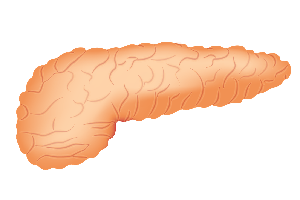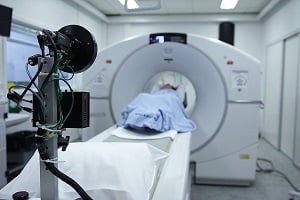Stage 4 Pancreatic Cancer
- Updated on: Jul 23, 2024
- 3 min Read
By
- Published on Dec 20, 2018

What is stage 4 pancreatic cancer?
Pancreatic cancer is considered as Stage 4 if it spreads to distant locations in the body, such as the lungs, liver or neighboring organs including the stomach, spleen, or the bowel. Sometimes it can only be revealed that a pancreatic cancer is in Stage 4 after a complete surgery is done. This is also called metastatic pancreatic cancer that means the cancer that originated from pancreas but has extended to distant locations.
Patients diagnosed with Stage 4 pancreatic cancer can be classified into two groups:
- Stage 4-A pancreatic cancer is locally confined, but involves adjacent organs or blood vessels, thereby making surgical removal of the cancerous tissue difficult. It is also known as localized cancer.
- Stage 4-B pancreatic cancer has the ability to spread to distant organs, usually the liver. This pancreatic cancer is also called metastatic pancreatic cancer.
People with stage 4 pancreatic cancer
Among all the major cancers, pancreatic cancer has perhaps one of the lowest survival rates. Pancreatic cancer’s damage brings a feeling of hopelessness for patients as well as their families. Early detection may reduce further complications.
Stage four pancreatic cancer is frightening as it is hard to diagnose and even harder to treat. It usually develops deep in the abdomen and thus becomes difficult to be found out. Till the time patients with stage 4 pancreatic cancer experience back pain, weight loss or jaundice and other symptoms, cancer usually become advanced and the dense tissues around the tumors make them hard to treat. Most of the time, patients face a depressing prognosis with limited options.
Emerging therapeutic approaches in treating Stage 4 pancreatic cancer
It is believed that in 2019, an adaptive clinical trial platform, called Precision Promise, will assess novel therapies along with the traditional standard therapeutic treatments for pancreatic cancer.
With ongoing research and hopeful innovations in treatment plans led by the Pancreatic Cancer Action Network in association with leading clinicians, researchers, the Food and Drug Administration and diagnostic and drug developers, patients may have access to different experimental treatments in a single trial in future. Researchers are suggesting that the patients will have the flexibility to receive a second treatment if the first one fails. This platform may accelerate critical care for patients and provide efficient insight into the disease.
Adaptive clinical trials are delivering hope to patients with Stage 4 Pancreatic cancer
The next generation of clinical trials has been awaited for a long time. The traditional clinical trials are inherently time-taking and expensive. Some patients find the right fit, and at times they spend valued time on treatments that usually fails in treating. Medical experts strongly recommend that people with stage 4 pancreatic cancers should participate in clinical research, however, only about 4 percent enroll themselves, making forward progress in treatments complex.
Adaptive clinical trials represent a turning point. The Precision Promise – Pancreatic Cancer Action Network will enable patients to connect with the medical community and other patients to advance therapies in a well-organized manner. Instead of time-consuming, costly trials, there may be a more efficient approach in enrollment and may allow patients to seek proper care. This efficiency can be critical for patients who don’t have sufficient time.
It may minimize the number of participants needed to pace successful treatments to market after clinical trials. Precision Promise in association with Tyme Inc. to include SM-88, a single metabolic approach in treating stage 4 pancreatic cancers, and other novel therapies are also moving in a hopeful direction. The net outcomes may accelerate the development of the most promising pancreatic cancer therapies.
The rest of the cancer community is paying attention to seek new therapeutic approaches. Progress made using adaptive trials may help pave the way for more agile, cost-effective clinical research that could eventually change the regulatory pathway for all cancer treatments. The cancer community usually looks for the following triple threat:
- accelerating the approval of promising therapies
- increasing opportunities for patients to access experimental treatments
- creating a more cost-effective model
Using this model, researchers are trying to gear up to find the mysteries of certain cancers. It may bring a new wave of hope for patients with pancreatic cancer.












